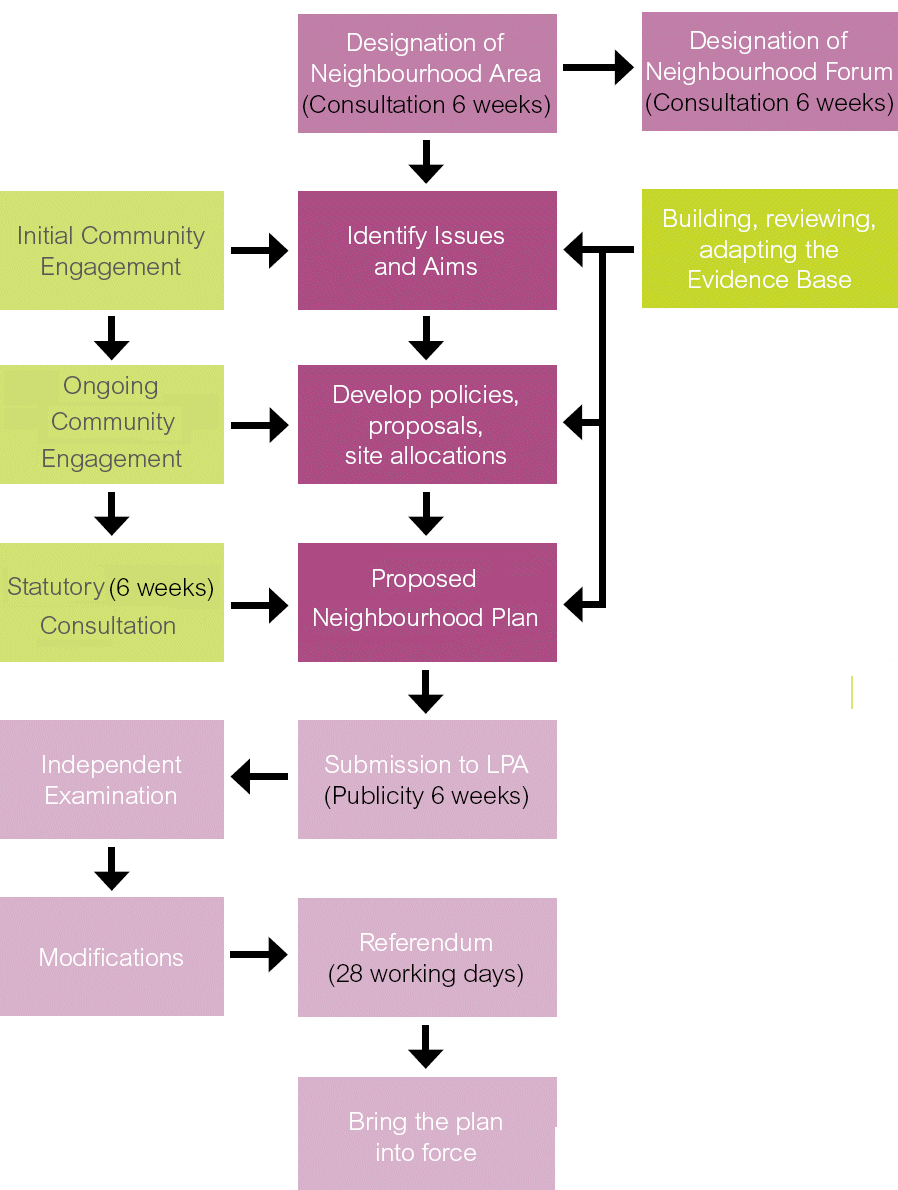Detailed plan-making process
Full details of the Neighbourhood Planning Process can be found on the Leeds City Council website at https://www.leeds.gov.uk/planning/planning-policy/neighbourhood-planning Neighbourhood Planning was introduced by the Localism Act 2011. It allows Town and Parish Councils to prepare their own local plans which influence development in their local area. Neighbourhood Forums perform a similar function in non-parished areas such as Kirkstall. Neighbourhood plans cannot propose less development than the local plan (or core strategy), but they can propose more homes or businesses, or alternative sites, or higher design standards.
The Localism Act requires only one Neighbourhood Forum in each area. Leeds City Council must consult with the community before agreeing to its formation and the area boundary. The board or steering group must reflect the local community, including residents and businesses. The forum must have at least 21 members including at least one councillor. Neighbourhood Forums can obtain financial support directly from their local council, and also from the Supporting Communities in Neighbourhood Planning Programme, which is administered by a consortium led by Locality / RTPI Planning Aid on behalf of Government.
Under the Town and Country Planning Act 1990 (as amended), the Council has a statutory duty to assist communities in the preparation of neighbourhood development orders and to take orders through a process of examination and referendum. The Localism Act 2011 (Part 6 chapter 3) sets out the LPA responsibilities as:
- Designating a forum
- Designating the neighbourhood area
- Advising or assisting communities in the preparation of a neighbourhood development order
- Checking a submitted order meets the legal requirements
- Arranging for the independent examination of the order
- Determining whether the neighbourhood development order meets the basic conditions and other legal requirements
- Subject to the results of the referendum/s bringing the order into force
In addition, legislation sets out who the relevant councils are with responsibility for arranging the referendum/s. The overall process can be summarised in the following diagram:

It is importand that the entire process is conducted transparently, and that all local interest groups are able to take part. The Leeds City Council website has an extensive section devoted to Neighbourhood Plans. The process starts informally, but becomes more disciplined and professional as the key issues are identified. The work of the Neighbourhood Forum culminates in a six-week period of Statutory Consultation on the proposed Neighbourhood Plan, which is then submitted to Leeds City Council for further processing.
The Council subjects the draft plan to Independent Examination to ensure that the plan:
- has regard to national policies and advice contained in guidance
- has special regard to the desirability of preserving any heritage assets
- has special regard to the desirability of preserving or enhancing the character or appearance of any conservation area
- contributes to the achievement of sustainable development
- general conformity with the strategic policies contained in the development plan
- does not breach, and is otherwise compatible with, EU obligations (e.g. Strategic Environmental Assessment5)
- prescribed conditions are met and prescribed matters have been complied (legal and regulatory).
It is likely that this process will identify some conflicts and that the draft plan will require some modifications. The final version is subject to a minimum of 28 days publicity, culminating in a “yes | no” postal referendum.
If the electors agree to the plan, then it has the full force of other planning documents in controlling local development.
